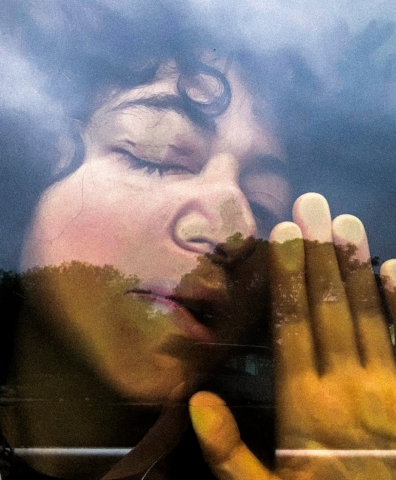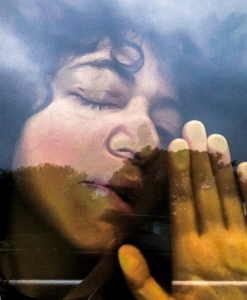Seeing the Pandemic through Women’s Eyes
Artworks documenting women’s experiences during the pandemic in Georgia were exhibited as part of the Tbilisi Photo Festival, with the exhibition posted online in response to a surge in numbers of COVID-19 cases. Supported by the United Nations Development Programme (UNDP) and the Government of Sweden, the I_Residency: Women Artists During Isolation project paired nine women photographers with eleven women writers to convey the impact of isolation.
“Women experience crises like the pandemic differently than do men,” said UNDP Head Louisa Vinton. “Isolation at home for many women has meant bigger burdens as caregivers and in some cases a heightened risk of violence. But it has also offered restorative solitude. Each in their own unique way, the artists in our project have captured this specficity, in both its positive and negative aspects.”
“In trying times, art can remind us of our interconnectedness,” said Ulrik Tideström, Ambassador of Sweden to Georgia. “The artistic works in this collection offer an array of very personal, yet universal in-depth accounts of the human struggle with the pandemic.”
The twenty visual artists and writes involved in the project used a variety of artistic means, from photography, video and multimedia to short stories, diaries, poetry and dramatic scripts. Among photographers were Tea Gvetadze, Natela Grigalashvli, Anka Gujabidze, Marika Kochiashvili, Tako Robakidze, Nata Sopromadze, Mano Svanidze, Daro Sulakauri and Luiza Chalatashvili. The list of writers included Salome Asatiani, Anna Dziapshipa, Nini Eliashvili, Maka Kukulava, Nestan Nene Kvinikadze, Salome Jashi, Lia Liqokeli, Marim Natroshivli, Anna Samadashvili-Kordzaia and Nino Tarkhnishvili.
“The Tbilisi Photo Festival has been supporting women photographers from Georgia and the entire South Caucasus for many years,” said Nestan Nijaradze, Artistic Director of the Tbilisi Photo Festival. “During the pandemic, we decided that it was our social responsibility to launch the I_Residency programme, create new opportunities for women writers and visual artists, and support them professionally, financially and emotionally.”
Support to women artists during the pandemic is part of UNDP’s wider efforts to assist Georgia in promoting equal rights and addressing the social and economic consequences of the COVID-19 crisis. The initiative was implemented under the Sweden-funded UN Joint Programme for Gender Equality.











